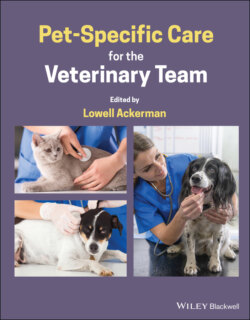Читать книгу Pet-Specific Care for the Veterinary Team - Группа авторов - Страница 239
3.3.2 Terms Defined
ОглавлениеAllele: A variant or alternative form of a gene, found at the same location on a chromosome, and which can result in different observable traits.
Dominant: Heritable characteristics, traits, or diseases that are expressed when inherited even from one parent.
Epistasis: The situation in which the action of one gene depends on the action of another gene.
Expressivity: The extent to which a genetic variant (genotype) expresses the so‐called clinical abnormality (phenotype) on an individual level.
Genetics: The study of genes and how traits or conditions are passed from one generation to the next.
Genome: The complete set of genes for an animal.
Genomics: The study of the entire genome, and its combined influence on complex diseases and the impact of environmental factors such as diet, exercise, medications, and toxins on genes.
Genotype: An individual's genetic constitution.
Heterozygote: An individual with two different alleles for a given gene.
Homozygote: An individual with two identical alleles for a given gene.
Locus: A fixed position on a chromosome for a gene or marker.
Penetrance: The likelihood of individuals in a population with a given genetic variant (genotype) fully displaying the clinical manifestations (phenotype) of that variant.
Phene: A trait or characteristic that is genetically determined.
Phenotype: Observable characteristics or traits that result from the interaction of genotype with the environment.
Recessive: Heritable characteristics, traits, or diseases that are expressed only when inherited from both parents.
